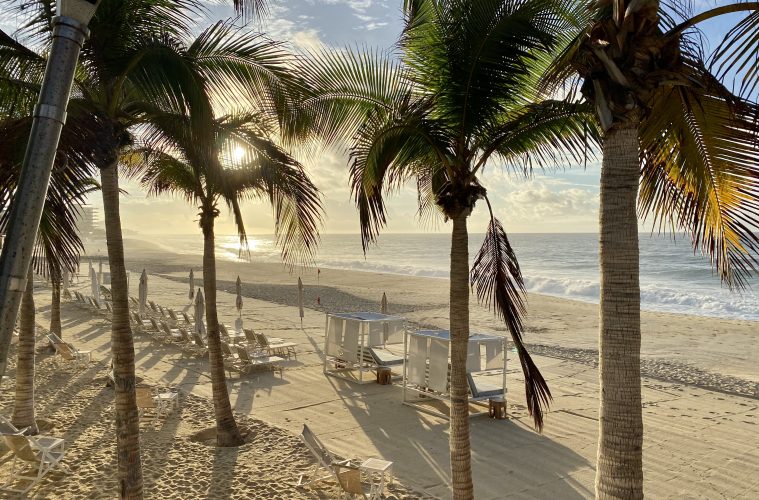Volkswagen camper vans have been around for more than 50 years, but their inspiration came from a time long before the 1960s. Even modern Sprinter vans are, at least in part, inspired by the same 19th century horse-drawn land yachts that inspired the VW bus.
In the 1960s and 1970s, Volkswagen buses became a popular option for camping groups, outdoorsy folk, and (of course) hippies. Then came a long period when nobody seemed to care about classic Volkswagens. The ones you saw on the street were generally run-down for much of the 1990s. It wasn’t until the late 2000s that VWs became popular again.
Here’s a look at a few of the reasons why we love these iconic vehicles.
Style & vintage appeal
When you see a classic Volkswagen, you think of a certain lifestyle. You think of California beaches, the Mojave desert, and the forests of the Pacific Northwest. People really love those places. Do you know what people also love? Vintage. From faded t-shirts to antique rings, the market for vintage is hot. The classic VWs, whether we’re talking about vannigans or beetles, embody all of this.
Ideal for short distances
Vintage campers can accommodate two to four individuals depending on the luggage and size of the individuals. Pop-top alternatives with antique rings enhance the sleeping area; however, if you are traveling with three other people, you might need to pitch the tent.
Versatility
A Volkwagen van can be your daily driver and your weekend getaway machine. Sure, these classic beauties don’t accelerate well. In fact, you’ll probably be driving in the slow lane everywhere you go. But people no longer point and laugh at the Volkswagen struggling to get from 0 – 60 in 15 minutes. Now, they look at you with envy.
No traveling inconveniences
Volkswagen camper vans will accommodate all your valuables, thus no missing luggage and no luggage charges. You can carry all you need for your vacation without any limits typical in air, train, and bus travel.
The engine’s in the back
The Volkswagen van, also referred to as Type 2, gathered more popularity since its air-cooled engine was situated at the back. The passengers and the driver gained a spacious compartment with minimal to zero engine heat or noise. Type 2 contributed to the quiet by also implementing the sophisticated suspension system.
Volkswagen camper vans have either raised roofs or folding roofs and are durable, comfortable, and economical.
Counterculture references
Multiple factors have contributed to the success of the VW van. One of the significant factors is its close association with hippie groups during the 1960s to 1970s. This image has stuck until today. Many people imagine Volkswagen cars being driven by California counterculture types playing guitars while nursing complex hairdos along the beaches of South Francisco. Volkswagen saturated the industry when the countermovement cropped up in U.S. Folks wearing flowers in their hair began driving, attending public festivals and living in vans. This mixture of comprehensive German design, fuel-saving, and straightforward model satisfied basic needs. Driving camper vans also gave off a ‘rebel’ vibe, which remains valued and much alive in middle-class enthusiasts, travelers, collectors, and festival-goers.
You don’t need to wait for retirement
The stereotype that RVs are for couples who enjoy traveling after completing their career progression is fading away. Millennials and other individuals, including women, are doing things uniquely. They want to explore places and have adventures; thus, many join the bandwagon of traveling and living in camper vans.
The digital nomad effect
The provision of labor has taken different turns in the past ten years. More organizations are offering options for remote working, and most professionals are ditching their 9-5 jobs for freelance tasks. This enables individuals to control places to spend their time and live. If you can work from any location with internet access, you can go to any part of the world.
Eco-friendly
If you have a DIY attitude, camper vans can be upgraded with advanced innovations in water recycling, solar power, and top-tier efficiency specs that reduce your carbon footprint. They are also lighter and economical on fuel, thus minimal wear on the engine.
How to Find an Old VW
When searching for an old Volkswagen, you need to identify the type of car you are looking for. Consider if you need an original car for a nostalgic appeal, lowered cruiser for car shows, or warrior bug. You also need to examine the vehicle for rust. Old vintage VW cars are susceptible to rust. Examine the floor pans, beneath the battery trays, spare tire wheel, doorpost, and back parcel shelf for any signs of rust. Examine also the transmission since Volkswagen transmissions are expensive to repair. It’s crucial to take the prospective car for a test drive.

